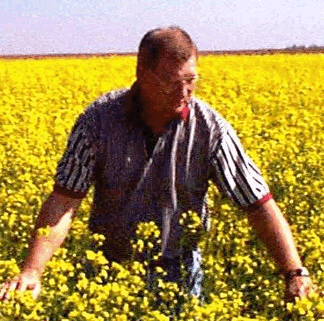Michael Fumento
Factual · Powerful · Original · Iconoclastic
Frankenfood Activists Failed to Scare the Public
June 13, 2002 · Michael Fumento · National Post · BiotechTORONTO - What happened? That’s what dazed and confused anti-biotech activists gathered at BIO 2002 in Toronto must be asking themselves in light of information showing that more transgenic crops than ever are being planted in North America.

Just two years ago, a gleeful scholar at the Worldwatch Institute in the United States declared in an International Herald-Tribune op-ed that, "After four years of supercharged growth, American farmers are expected to reduce their planting of genetically engineered seeds by as much as 25% in 2000 as spreading public resistance staggers the once high-flying biotech industry."
Dust off your crystal ball, guy. Biotech plantings actually increased in North America in 2000. And like a certain pink bunny, they just keep on going and going.
In Canada, almost three million hectares of transgenic crops were planted last year.
The top such crop is canola. Transgenic Canadian canola increased from 53% of hectares planted in 1999 to 61% in 2001, covering 2.7 million hectares.
"With canola, we’ve gone from virtually zero to more than half the planted acres in a five-year time frame," exclaims Denise Dewar, executive director of Plant Biotechnology at CropLife Canada.
Soybeans engineered to resist herbicide (so that the chemical can be sprayed "over the top" of crop and weeds alike) shot up from 18% in 2000 to 28% in 2001. Transgenic corn, that either resists herbicides or insects, increased from 30% of all Canuck corn in 2000 to 36% last year.
The United States has about 10 times the transgenic acreage as Canada and is even quicker to adopt the technology.
Three-fourths of U.S. soybeans harvested this year will be transgenic, compared with 54% in 1999, according to a U.S. Department of Agriculture survey. About 32% of corn grown will be of biotech varieties, compared to 25% in 1999. Transgenic cotton will increase to 71% of all planted acreage.
Certainly the "Frankenfood" activists gave it their best shot. First, they tried to convince us that biotech corn would kill butterflies. But two years of field research proved that wrong. Then they tried to scare consumers about tainted tacos, but the public correctly shrugged that off as just another food scare.
Surveys in North America show that the more we realize we’ve been safely eating these foods for six years now, the more comfortable we become with them.
Yet both here and abroad, activism and ignorance remain powerful forces against progress.
One victim is a potato with built-in insect resistance transferred from Bt, a bacterium that’s been used in transgenic corn and cotton in North America for six years now. For decades, organic growers have used it in spray form.
But in both the United States and Canada, "We’ve pushed hard on potatoes and we’ve gotten nowhere," says Mark Sears, an entomologist in the Department of Environmental Biology at the University of Guelph.
Such potatoes are practically a miracle crop, he says. "I was testing them back in 1994 in plots being eaten alive by potato beetles and the Bt potatoes were untouched," says Sears. "In Ontario, we often use two to four sprays for potato beetles. Bt potatoes required no spraying for beetles, though sprays might be needed for some other pests," he tells me.

But, he adds, "We can’t sell them because companies like McCain Foods, the world’s largest potato processor, won’t sell them." Why? "We think genetically modified material is very good science," says Chairman Harrison McCain, but "at the moment, very bad public relations."
The trouble with the transgenic tubers is activists. They’re also holding back other vital crops like Bt sweet corn. "McDonald’s says we don’t want people dressing up like potatoes and butterflies near our restaurants," says Sears.
Likewise biotech corn plantings fell dramatically in Canada three years ago after the European Union slapped a moratorium on certain varieties so processors stopped accepting them.
"The debate in Europe is still vigorous and ongoing, but it’s probably less so on the food safety side and more on cultural and socio-economic grounds," says Christian Verschueren, director general of Brussels-based CropLife International, a global industry umbrella group.
Elsewhere, though, resistance is weakening. "All around the world, there has been real progress in the acceptance of the technology and acceptance of crops using the technology," Verschueren told me.
Further, it’s not just the environment and farmers that will gain. Verschueren notes that products popping out of the research pipeline, like beta-carotene fortified golden rice, will "provide added value to food itself."
Biotech agriculture was destined to prevail, just as gasoline-powered cars were destined to defeat steam-powered vehicles. Unfortunately, what’s not inevitable is the rate of progress. Activists continue to fight a well-organized holding action. So long as they do, much of the world and even North America will be denied the wonderful bounties of biotech.
